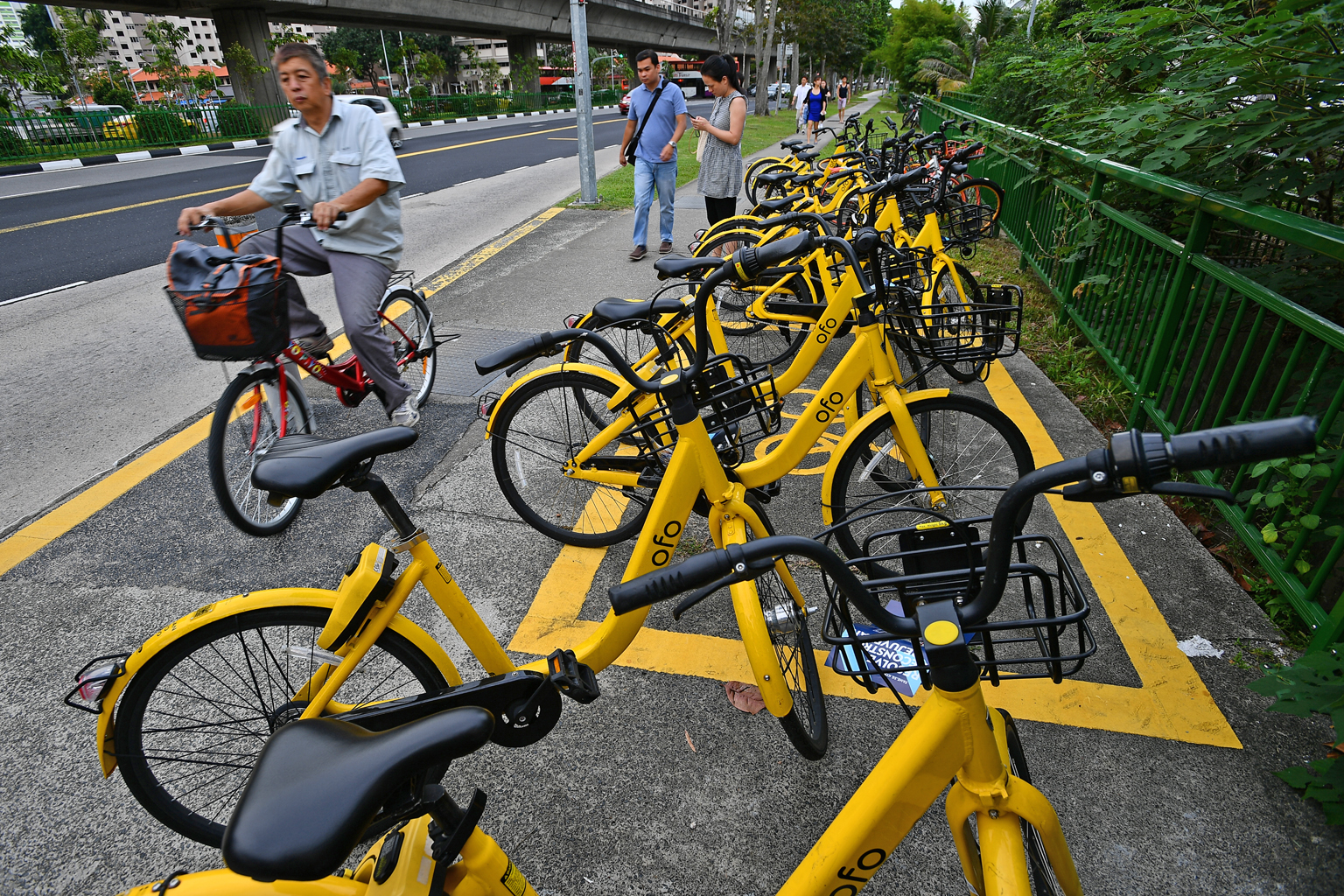Riders set to pay more for shared bikes
ofo raises prices barely two weeks into new licensing scheme, other firms likely to follow
Sign up now: Get ST's newsletters delivered to your inbox

Bike-sharing operator ofo, which is licensed to operate 25,000 bikes, raised its prices on Tuesday. Observers say that while other firms may stick to lower prices for now to attract customers, they could raise prices if they see ofo's business unaffected by its higher prices.
ST FILE PHOTO
Follow topic:
Bike-sharing firm ofo has raised its prices, less than two weeks after it was granted a licence to operate its services here.
With the increased costs of operating under the new licensing regime where firms are charged a fee for each bike they operate, observers expect more firms to follow suit in raising their prices.
Mobike, SG Bike, Anywheel, Qiqi Zhixiang and GrabCycle are the other five companies awarded licences.
Mobike said it was reviewing its pricing model but declined to give further details. The firm is exploring other sources of revenue, which include corporate sponsorship and advertising, said Mobike country manager Sharon Meng.
SG Bike had previously told The Straits Times that while it expected operating costs to go up, it would not pass on these costs to users.
However, Singapore University of Social Sciences transport economist Walter Theseira said it may just be a matter of time before other companies raise their prices as well.
"Well-financed" companies may stick to lower prices for now to attract customers, he said.
-
25k
Number of bikes ofo is allowed to operate here under new LTA rules.
$1.5m
Additional cost in fees for ofo under the new licensing scheme.
6
Number of bike-sharing companies granted licences to operate here, including ofo.
However, they could raise prices should ofo's business prove to be unaffected by the higher prices.
"Once your competitors see that it works, then they are likely to follow suit," said Dr Theseira.
Since Tuesday, ofo users pay 50 cents to unlock its bikes and an additional 50 cents for every 15 minutes of use or part thereof.
It cost just 50 cents per half hour of use previously.
The prices of ofo passes, which allow users to rent ofo bikes for a flat fee over a period of between one and three months, have also increased.
A 30-day pass now costs $8.99, a $2 increase. The 60-day and 90-day passes now cost $16.99 and $26.99 respectively, increasing by $1.99 .
Some users were unhappy with the higher prices.
Senior software engineer Wee Yik Shan said it was difficult to find a well-maintained ofo bike and higher prices would further discourage him from using the service.
"ofo will lose many customers, including me," said the 39-year-old.
Others such as commercial artist Rizal Ismail, 36, felt the higher prices were reasonable, given the higher operating costs after the introduction of the Land Transport Authority's (LTA) licensing scheme.
Last month, ofo - which had applied to have a fleet of 80,000 bicycles - was granted a licence for 25,000 bikes under the new regime which caps the number of bikes each company is allowed to operate.
At a cost of $60 per bike - comprising a $30 licence fee and a $30 security deposit - ofo faces an additional $1.5 million in fees.
In contrast, SG Bike - which was allowed to operate 3,000 bikes - would pay $180,000 in fees.
ofo general manager Isabelle Neo said the firm was "adjusting" its prices. She added: "This is to ensure we maintain the quality of our bikes, as well as the level of service we've been able to provide our users."
She declined to comment on whether the higher prices would affect business.
ofo and its peers would also have to bear the costs of reprogramming their apps to allow for measures such as the scanning of QR codes at designated parking areas, as part of LTA's efforts to curb indiscriminate parking.
Meanwhile, even as ofo raises its prices in Singapore, it has been shrinking its international operations.
Earlier this year, it pulled out of cities in the United States, as well as Israel and Australia. It had said the withdrawals were aimed at allowing it to focus on "priority markets", including Singapore.
In May, ofo also began allowing advertisements on its bikes and app in China, as part of efforts to boost revenue.

